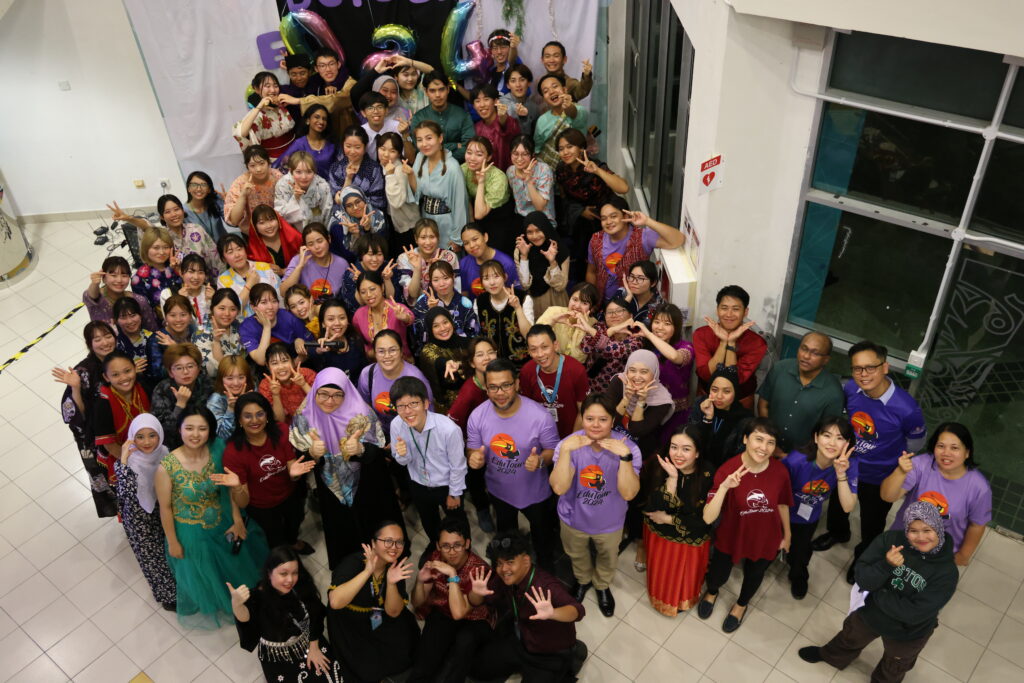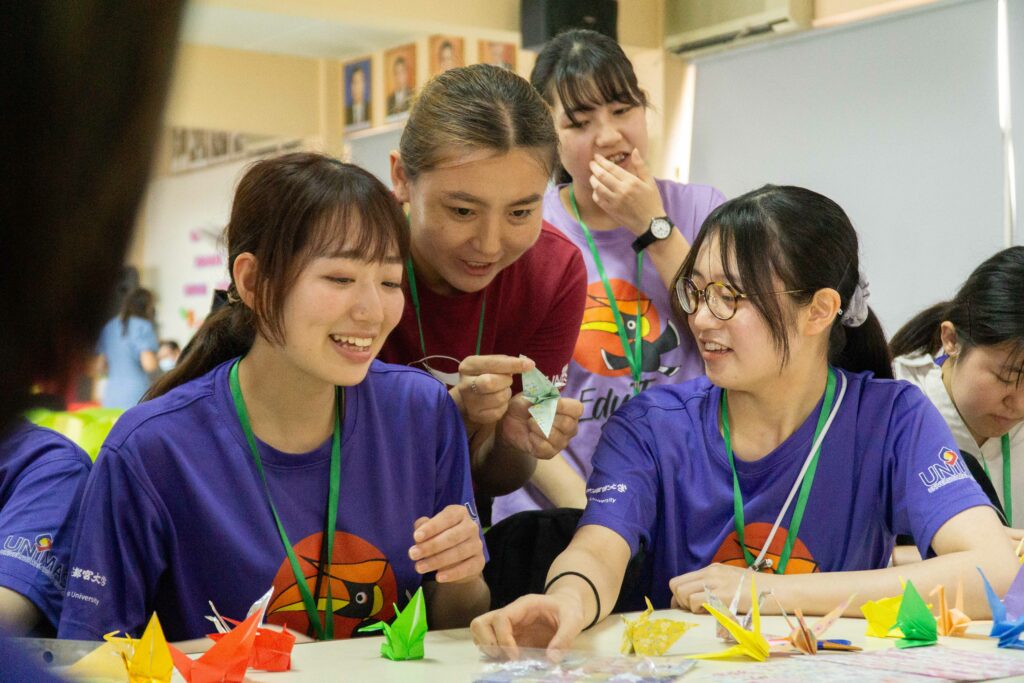
Written by Nurul Huzaimah Hussien and Souba Rethinasamy (FELC)
Photos by Mohamad Zul Hariz Mohd Fadzli (for UNIMAS Corporate)
On 28 February 2024, the Faculty of Education, Language, and Communication (FELC) at Universiti Malaysia Sarawak (UNIMAS) proudly hosted participants from Utsunomiya University (UU) for an enriching visit to Chung Hua Primary School No. 5 Kuching. This visit was part of EduTour2024, a short-term international mobility programme aimed at fostering educational and cultural exchanges between Malaysia and Japan.
EduTour, now in its seventh consecutive year, is a testament to the enduring partnership between FELC and UU. The FELC EduTour team is led by Prof Dr Souba Rethinasamy with the dedicated Dr Soo Ruey Shing, Dr Joseph Ramanair, Ms Nurul Huzaimah Hussien, Ms Liyana Rosli, Ms Keezrawati Mujan Yusof, and Mr Damien Mikeng as team members. The UU team is led by Prof Dr Tatsuhiro Ohkubo, AP Dr Takashi Izuha, Prof Dr Chieko Mimura, and Dr Nao Igarashi. This programme provides participants with unique opportunities to enhance their English language skills, engage with the community, and immerse themselves in the rich cultural tapestry of Sarawak, thus creating a meaningful and memorable university learning experience for the participants.
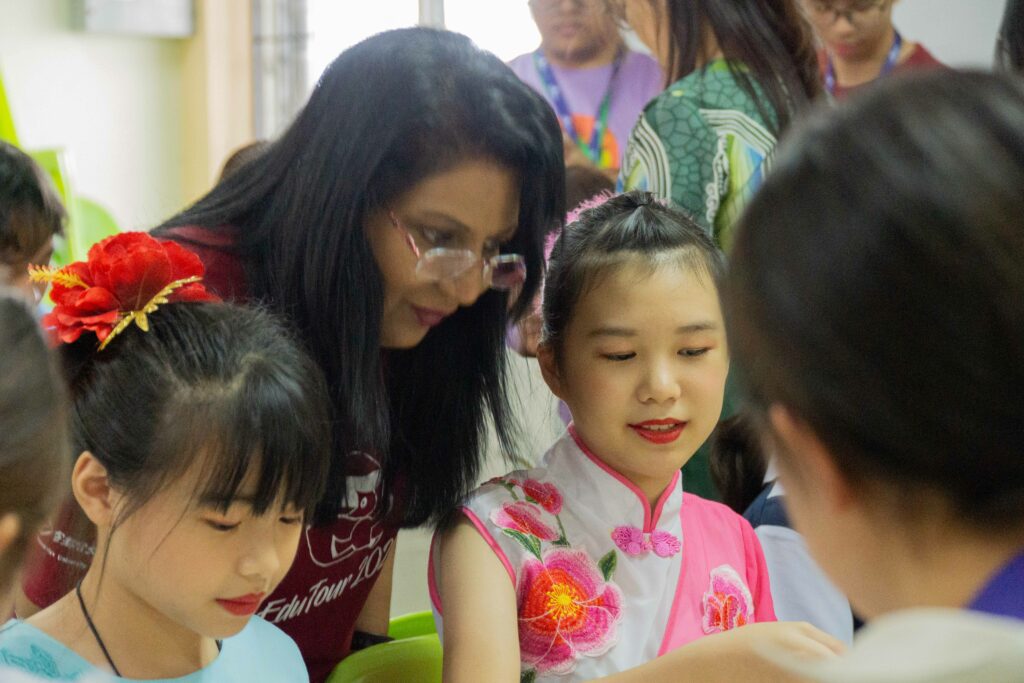
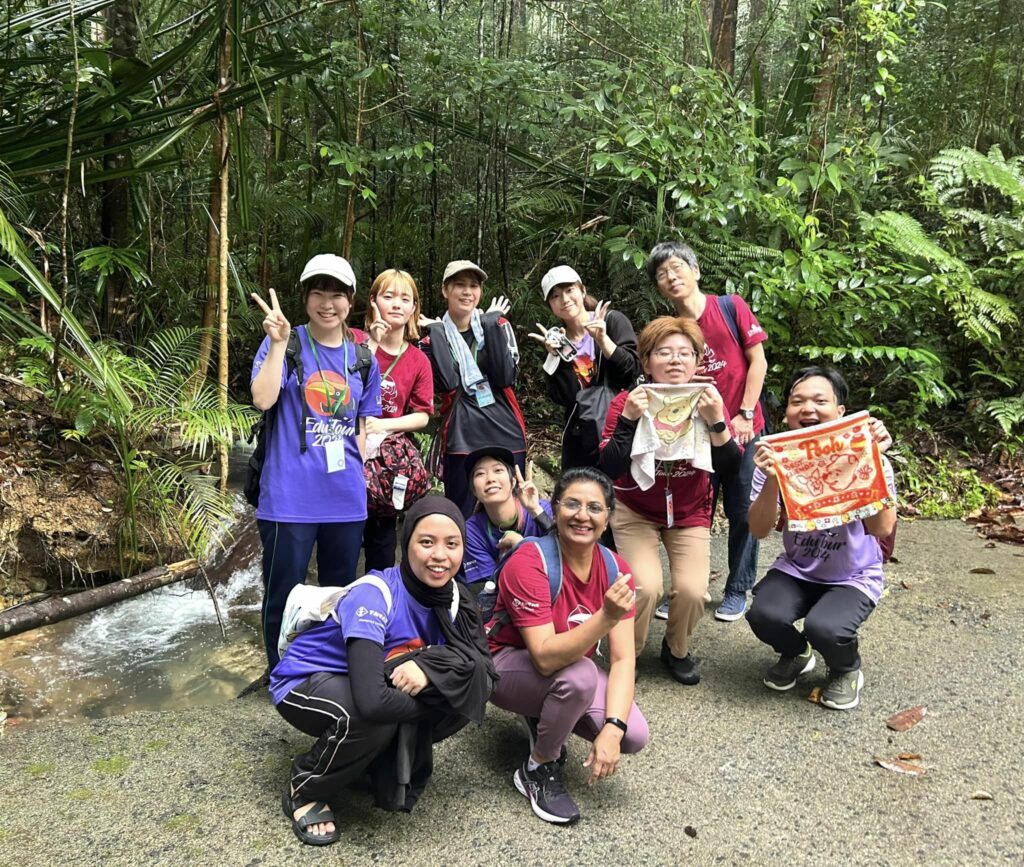
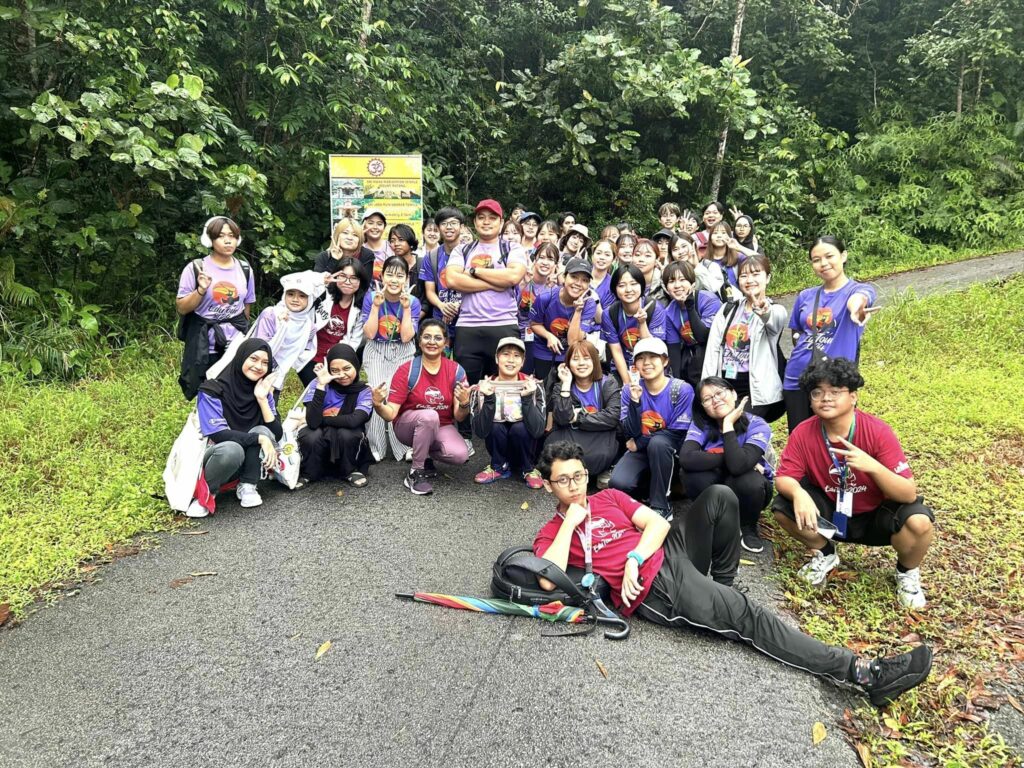
An Enriching Experience
This year’s EduTour welcomed 36 participants and five staff members from UU. The programme, which ran from 20 February to 6 March 2024, included English classes that focused on the United Nations Sustainable Development Goals (SDGs). These classes, taught by academic instructors from FELC UNIMAS, aimed to promote global peace and prosperity through education, in addition to enhancing English language skills.
UNIMAS student buddies—26 in total from various faculties including FELC, the Faculty of Engineering (FENG), and the Faculty of Social Sciences and Humanities (FSSH)—played an integral role. These buddies assisted in English classes and participated in activities, fostering cross-cultural understanding and lifelong friendships.
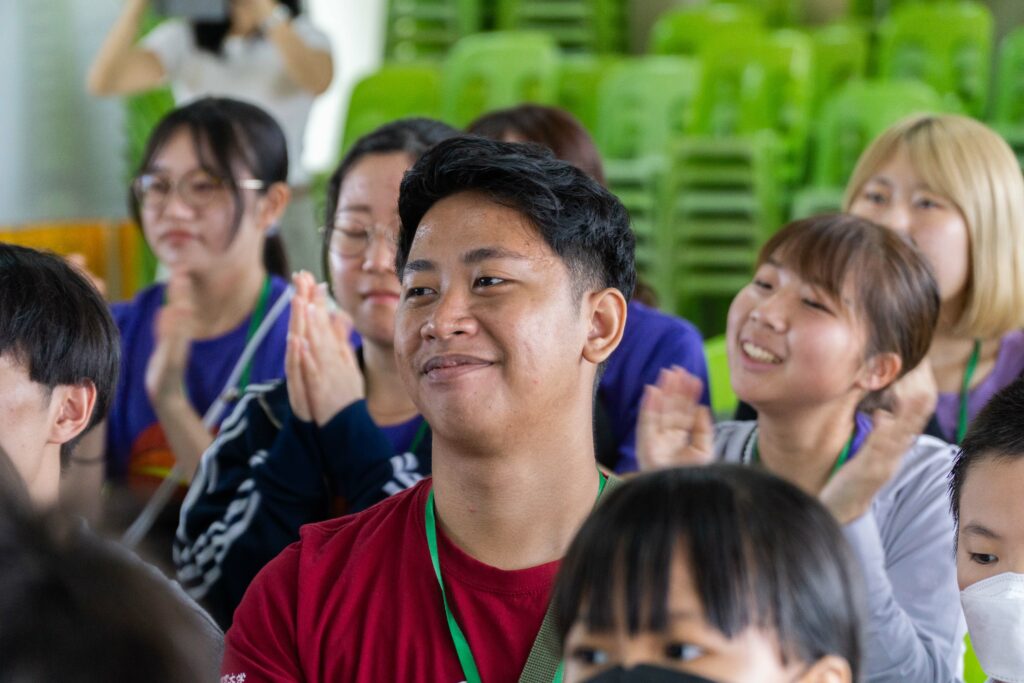
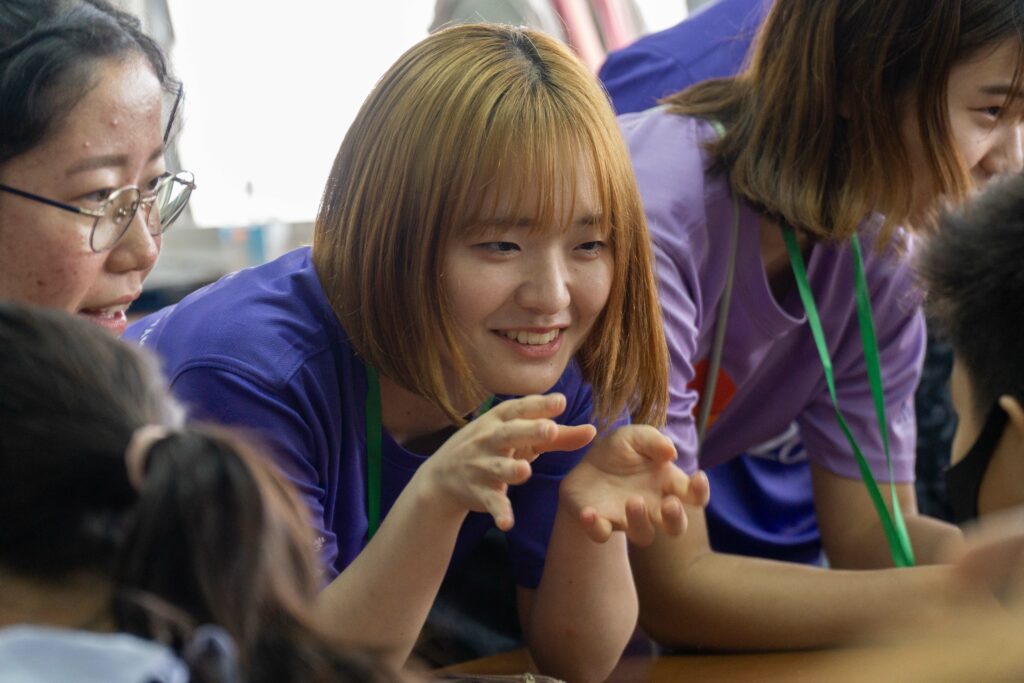
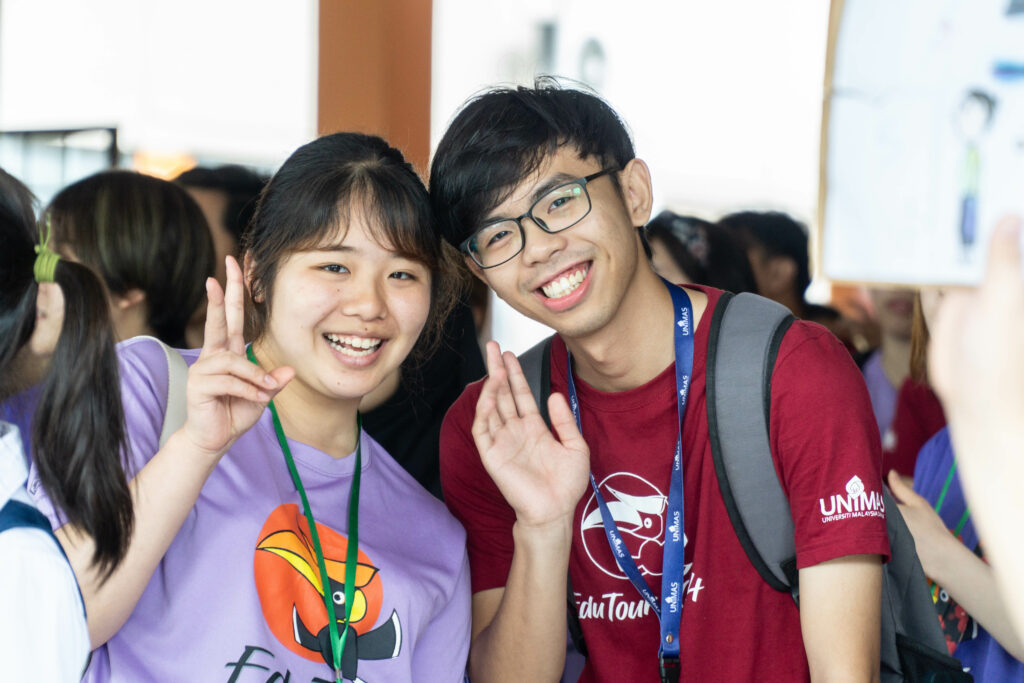
A Heartfelt Visit
The highlight of the visit was the interaction between the UU participants and the students and teachers at Chung Hua Primary School No. 5 Kuching. The school’s corridors buzzed with excitement as the visitors were greeted with warm smiles and quiet giggles.
The students treated their guests to a cultural dance titled “Colourful Malaysia,” which vividly showcased the country’s diversity. This performance was a vibrant display of traditional costumes and dance styles from various Malaysian ethnic groups, symbolizing the unity in diversity that defines Malaysia.
Following the dance, the school organized hands-on educational and cultural activities. There were two distinct parts to the cultural exchange. Firstly, the school arranged for the Japanese visitors to participate in the traditional art of Chinese calligraphy, specifically focusing on the character “春,” which symbolizes the arrival of spring in both Chinese and Japanese cultures. It was fascinating to observe how one of the Japanese students associated this word with the spring festival in Japan, highlighting the cross-cultural connections that exist between seemingly unrelated traditions.
As part of the activities led by the Japanese students, there were two engaging sessions: a basic Japanese language class and an origami workshop. These interactive sessions facilitated direct interaction between the Japanese and school students, enriching the educational experience which allowed students to gain insights beyond the classroom.
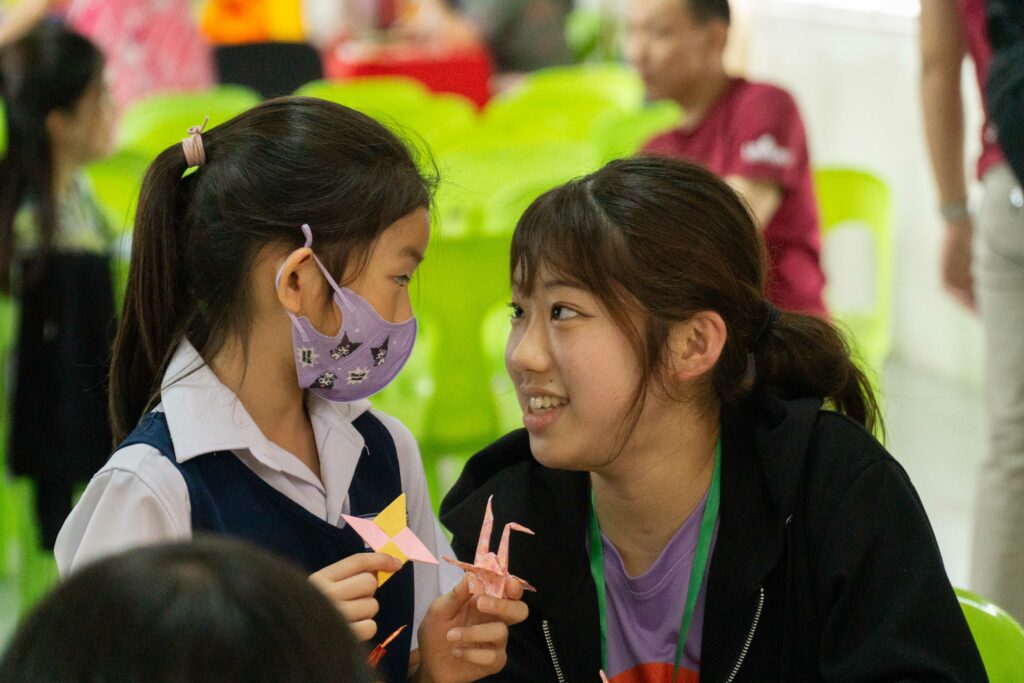
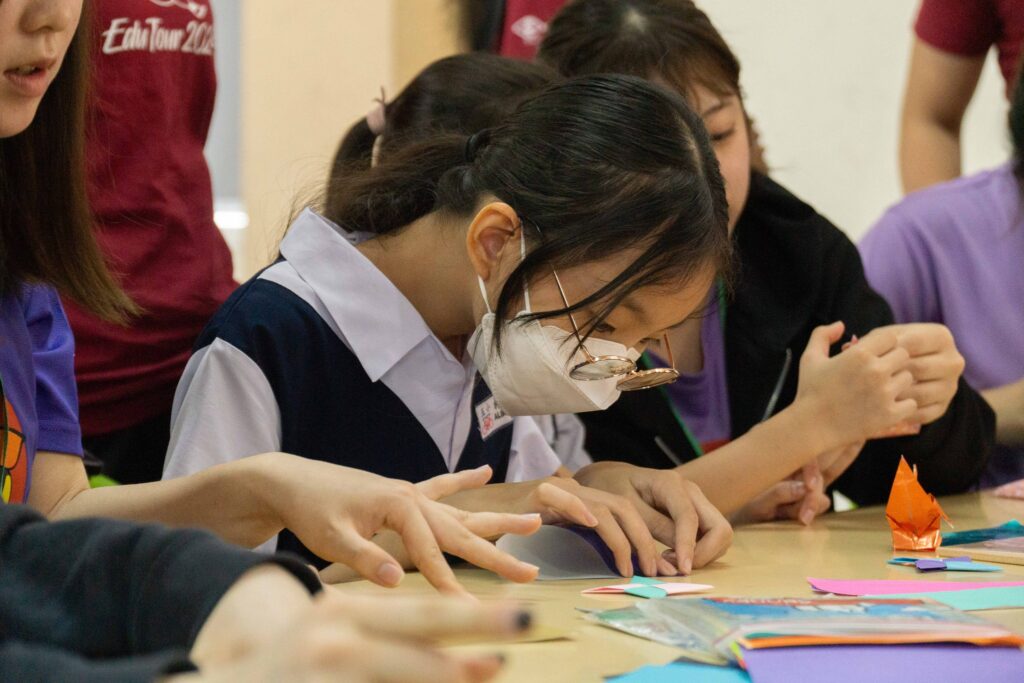
Before bidding farewell, Chung Hua Primary School No. 5 Kuching extended one final gesture of cultural exchange by treating the Japanese visitors to a traditional-themed lunch. The lunch pack included local delicacies such as karipap, sate, lemang, pulut, and the highlight, manok pansuh. Witnessing the Japanese students’ amazement at the preparation methods of these dishes was truly heartening, and their eagerness to sample everything, some even asking for seconds, accentuated the success of the cultural exchange. To conclude the meal, in celebration of the Chinese New Year season, the visitors were treated to kuih lapis and traditional biscuits, offering them a taste of Malaysian festive delights.
A visit such as this one provided a wonderful opportunity for the Malaysian students interact with international visitors, broadening their horizons and encouraging them to learn more about different cultures. This exchange of ideas and experiences enriched both the visitors and the hosts, highlighting the value of such cultural interactions.
“Through visits like this, Japanese participants truly benefit from interacting with locals. It’s much more enjoyable than just learning from within the classroom! This personal interaction humanizes their experience and helps them appreciate and understand our culture better.”
Dayang Fairuz Awg Baki, EduTour2024 EGC buddy
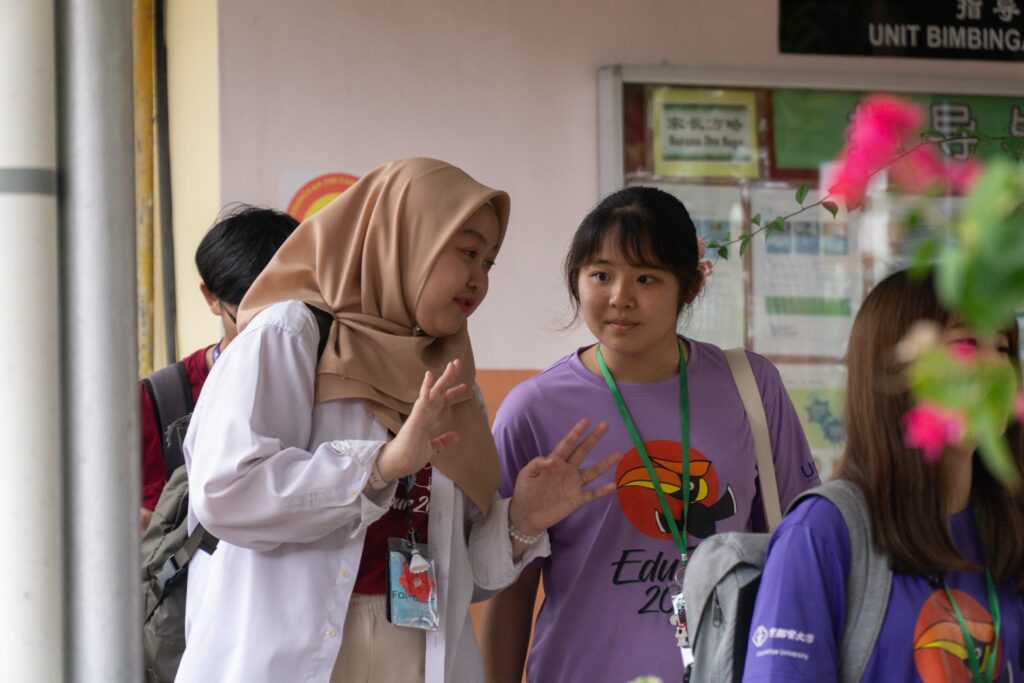
Looking Ahead
The FELC-UU EduTour program remains committed to initiatives that enhance community knowledge and expertise. The planned activities, outings, and school visits are designed to give UU participants a deep appreciation of Sarawak’s multiculturalism and biodiversity. At the same time, this serves as a chance for UNIMAS students to establish friendships and cultivate professional connections with their Japanese counterparts, paving the way for potential collaborations and enriching experiences in the future.
The Importance of Student Mobility and International Partnerships
Student mobility and international partnerships, as exemplified by the EduTour programme, are crucial for fostering global understanding and cooperation. Such programmes enable students to experience different cultures firsthand, enhancing their educational journey and broadening their perspectives. UNIMAS, with its commitment to being a “Community-driven University for a Sustainable World,” continues to lead initiatives that promote sustainability, peace, and prosperity through education and cross-cultural collaboration. This dedication not only enriches the lives of participants but also contributes to building a more interconnected and harmonious global community.
